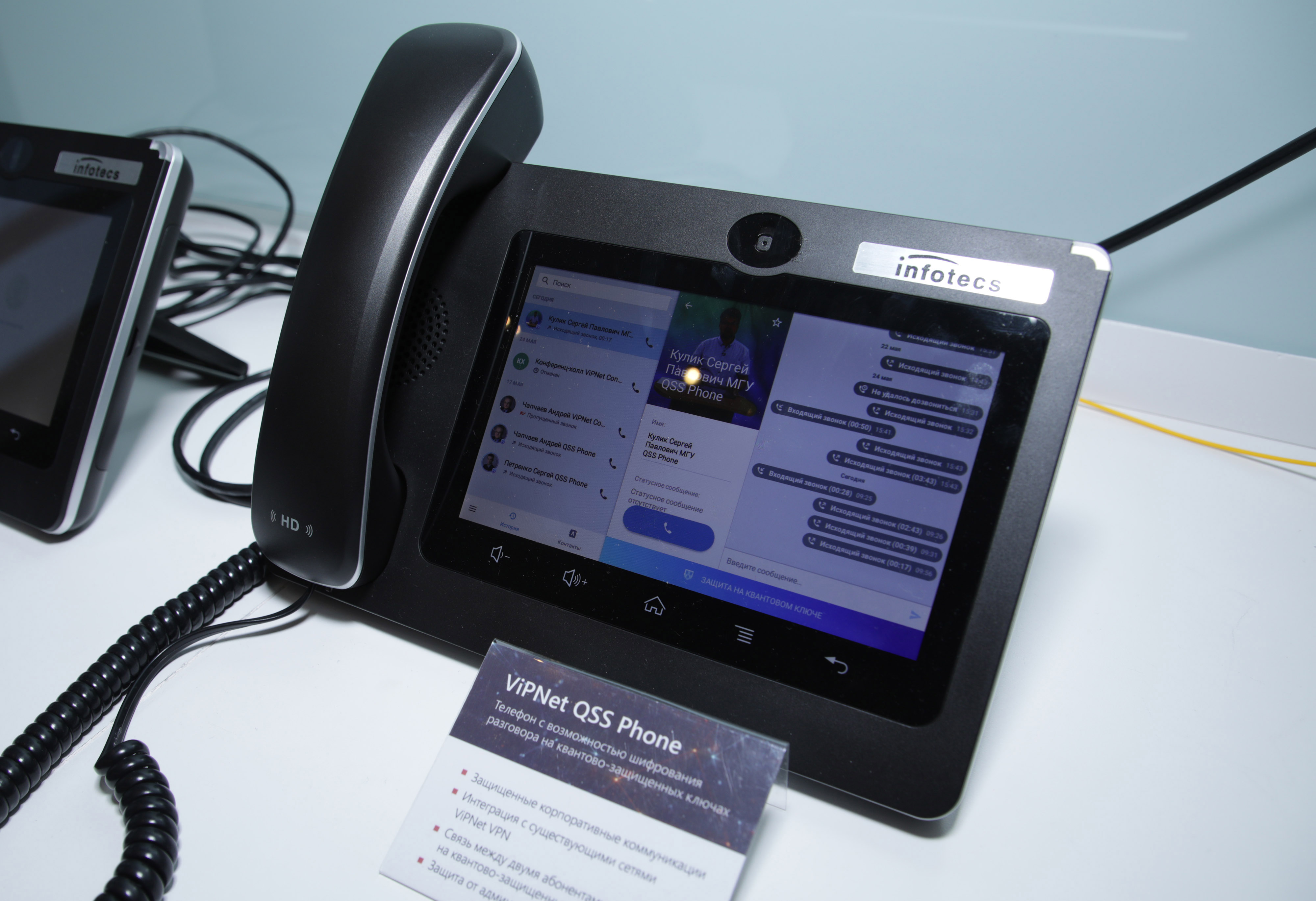Quantum Telephony Network deployed at Moscow State University using Vipnet QSS
The Centre for Quantum Technologies at Moscow State University has deployed a secure quantum telephony network, reports Cnews.ru. The network will interconnect 20 quantum telephony users. The maximum distance between users is 50 km. The network will be based on the Vipnet Quantum Security System (Vipnet QSS) quantum encrypting system. The project was started in December 2020 and should be completed by the end of 2021.
During the implementation of the program, a secure segment of the quantum network will be created between several subscribers located on the territory of the Moscow State University campus on Lenin Hills. The network points of presence will be installed at the Department of Physics, in the Main Building and in the Center for Quantum Technologies (about 20 subscriber points in total). In 2021, the network will be integrated with the network of Infotecs and by the end of this year the quantum protected network will be fully put into trial operation.
“Before quantum encryption becomes a familiar part of secure business communications, it is necessary to thoroughly test all possible options for the operation of such systems. The project that we started complements and develops the experiments and developments in the field of quantum communications over fiber-optic networks that we and other companies working in this field previously carried out, “said Professor Sergei Kulik, scientific director of the Center for Quantum Technologies at Moscow State University.

The quantum network will be built on the ViPNet Quantum Security System ( ViPNet QSS ), a quantum cryptographic system for generating and distributing keys (KKS VRK ), developed by InfoTeKS in collaboration with the Center for Quantum Technologies of Lomonosov Moscow State University. The system operates in a star topology and is designed to distribute encryption keys between trusted zones. In the course of the project, several tasks will be solved simultaneously: this quantum network will be multi-node, it will work in urban conditions, a secure channel will connect the networks of different organizations.
To ensure the safe transfer of information between protected zones, ViPNet QSS Point clients are installed in each zone, which are connected via a quantum channel through a hierarchical system of ViPNet QSS Switch optical switches to the ViPNet QSS Server. Thus, the trusted zones are combined for secure communication. The ViPNet QSS system delivers encryption keys to all devices that encrypt user information.
The confidentiality of negotiations through this system is based on strong symmetric encryption of network traffic between subscribers using the quantum key distribution protocol. In turn, the robustness of this protocol is based on the fundamental principle of quantum physics – the impossibility of measuring a photon without changing its state. This means that if an attacker tries to intercept photons, from which a quantum key should subsequently be formed, their initially prepared states will change. The protocol will detect these changes and will not use such photons to generate a secret quantum key.
One of the advantages of a “quantum” phone is the ability to encrypt voice traffic and text messages of users on keys unknown even to the network administrator.
“Our cooperation with colleagues from Moscow State University began 4 years ago. During this time, we have created several cryptographic systems operating in different topologies. It is pleasant to note that our joint developments also find practical application, – commented Dmitry Gusev, Deputy General Director of InfoTeKS. “I think that the trial operation of ViPNet QSS will allow us and colleagues from the Center for Quantum Technologies to better understand the real needs of customers interested in quantum technologies.”
One of advantages of “quantum” phone is an opportunity to cipher voice traffic and text messages of users on the keys unknown even to the network administrator.
……………………………………………………………………………………………………………………………………………………………………………………………………….
On May 28, 2019, InfoTeKS and the NTI Competence Center – Center for Quantum Technologies of the Physics Department, Moscow State University demonstrated the work of a pre-production sample of the first “quantum” phone in Russia, ViPNet QSS Phone, which is part of the ViPNet Quantum Security System (ViPNet QSS).

A session of voice communication was carried out between the Center of Quat Technologies and the Infotecs office, protected on quantum keys and using an optical line provided by YL-com.
Quantum telephone is a joint development of the NTI Competence Center, created on the basis of the M.V. Lomonosov and Infotecs, a partner of the university in the quantum Consortium. Work on the product began in 2016 with a decision to support a local project within the MSU Development Program.
The confidentiality of negotiations on a “quantum” phone is based on strong symmetric encryption of network traffic between subscribers using the quantum key distribution protocol for the distribution of keys. In turn, the stability of this protocol is based on the fundamental principle of quantum physics that it is impossible to measure a photon without changing its state. This means that if an attacker tries to intercept photons, from which a quantum key should subsequently be formed, their initially prepared states will change. The protocol will detect these changes and will not use such photons to generate a secret quantum key.
………………………………………………………………………………………………………………………………………………………………………………………………………


